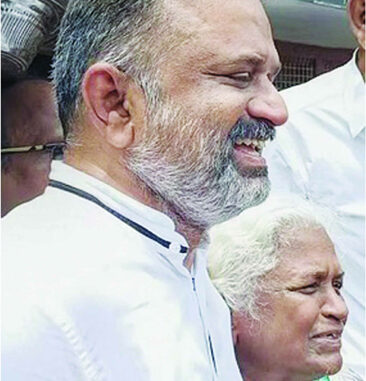
New Delhi (TIP)- India‘s Supreme Court has ordered the release of one of the men convicted of involvement in the 1991 murder of former prime minister Rajiv Gandhi. AG Perarivalan had spent over 30 years in jail. In 1998, he was given a death sentence, but it was later commuted.Arrested aged 19, Perarivalan was convicted of procuring batteries that were used in the bomb to kill Gandhi. The ex-PM was assassinated by a female suicide bomber as he addressed an election rally in Tamil Nadu state. Gandhi’s killing was widely seen as retaliation for his having sent Indian peacekeepers to Sri Lanka in 1987 when he was prime minister. Perarivalan was a supporter of the Liberation Tigers of Tamil Eelam (LTTE), a rebel group fighting for a separate Tamil state in Sri Lanka. The rebels were finally defeated by Sri Lankan troops in 2009.
On Wednesday, May 18, a three-judge bench of the Supreme Court invoked a section of the Indian constitution that grants it extraordinary powers “for doing complete justice in any cause” to release Perarivalan, one of seven people convicted in the case, considering that he had been in jail for more than 30 years.Over the years, governments in Tamil Nadu state had asked for those found guilty over the killing to be released.
In 2000, the state governor had commuted the death sentence of Nalini, the only woman convicted in the case, and in 2014, the Supreme Court had commuted the death sentences of all the others on account of an 11-year delay in deciding their mercy petitions.
“Given petitions under Article 161 pertain to the liberty of individuals, inexplicable delay not on account of the prisoners is inexcusable as it contributes to adverse physical conditions and mental distress faced by a prisoner, especially when the State Cabinet has taken a decision to release the prisoner by granting him the benefit of remission /commutation of his sentence,” the court said. In doing so, the court also rejected the Centre’s argument that the President, and not the Governor, had the power to pardon in a murder case.





Be the first to comment